Genomics Facility
Head of Genomics Facility & Lab Manager
Andrea Rinaldi, PhD
andrea.rinaldi@ior.usi.ch, +41 58 666 7041
Members
Andrea Rinaldi, PhD
Arianna Cerana, Lab Technician
Lorenzo Scalise, Lab Technician
Overview
The IOR Genomics Facility is fully equipped to perform genomic studies, including next-generation sequencing (NGS) for DNA and RNA analyses. The Facility personnel supports experimental planning and performs quality control procedures required for NGS on Illumina’s platforms.
The facility primarily supports genomic studies for researchers at the IOR, IRB, and other institutes in Ticino. The facility can also support a limited number of external collaborations. We aim to make next-generation sequencing and high-throughput screening accessible to as many researchers as possible. By doing so, we advance the use of these experimental techniques and facilitate discoveries that are only possible using high-throughput technologies.
To inquire about experimental planning, availability and costs, contact Andrea Rinaldi.
The Foundation of the Institute of Oncology Research supports the facility.
Services
The services include sample preparation, data generation and, on request, delivery of partially preprocessed or analyzed sequencing data. Currently, we support the library construction for:
- RNA-Sequencing (polyA and Ribodepleted libraries)
- Whole Exon Sequencing (WES)
- Whole Genome Sequencing (WGS)
- small RNA-Sequencing
- ChIP-Sequencing, ATACseq, Cut&Run seq
- Methyl-Sequencing
- Amplicon sequencing.
- Spatial transcriptomics
- scRNA (smartseq, 10xGenomics, BD Rhapsody, ParseBiosciences)
Key Equipment
- The illumina NextSeq 2000 benchtop sequencing system is redesigned from the ground up. Is flexible and scalable with a wide range of available flow cells. The NextSeq2000 generates up to 2.4B reads, 2x300 bp paired-end reads, or 360 Gb of sequence data.
- The illumina NextSeq 500 benchtop sequencing system provides the flexible power and simplicity you need to analyze whole genomes, exomes, and transcriptomes. The NextSeq generates up to 400 million reads, 2x150 bp paired-end reads, or 120 Gb of sequence data.
- The illumina MiSeq sequencing by synthesis chemistry is the most widely adopted next-generation sequencing technology. Data quality is achieved by a proprietary, reversible terminator-based method that detects single bases as they are incorporated into massively parallel DNA strands. The MiSeq generates up to 25 million, 2 x 300 bp paired-end reads, or 10 Gb of sequence data.
- The illumina MiniSeq System offers a simple, affordable solution. Advance your research with proven Illumina NGS technology. Perform a broad range of targeted DNA and RNA applications in your own lab on your own schedule.
- The 10XGenomics Chromium Single Cell platform was designed to help make single cell studies accessible, approachable, and easy for everyone. Versatile assays are part of end-to-end workflows that combine with user-friendly instruments for efficient cell partitioning and barcoding, plus intuitive software for data analysis.
- The 10XGenomics Visium CytAssist is a compact instrument designed to simplify the Visium workflow by facilitating the transfer of transcriptomic probes from standard glass slides to Visium slides, enabling whole transcriptomic spatial profiling insights across your entire tissue section, and expanded compatibility with FFPE and/or FF samples.
- The BD Rhapsody Single-Cell Analysis System enables high-throughput capture of multiomic information from single cells. With a visual workflow QC for confidence in every experiment, >80% cartridge capture rate for certain cell types and gentle settling of cells in microwells, is ideal for fragile cells such as neutrophils. Broad range of cell throughput 100-40’000 cells
- Nanostring NCounter Sprint Profiler is a single instrument designed to let you digitally examine multiple pathways in a single tube and with an extraction-free workflow requiring only 10 minutes of hands-on time. Can analyze from 10s to 100s of targets simultaneously using single-tube multiplexing. The results are direct counts for each target.
- Biometra TAdvanced Thermal cycler offer superior heating and cooling rates that helps achieve ramping rates with a sample block made of aluminium
- RealTime PCR AppliedBiosystems
- HTG EdgeSeq System
- Bio-Rad QX200
- Covaris M220 - The Covaris is a DNA/RNA shearing method that uses Adaptive Focused Acoustics (AFA) technology under isothermal conditions to maintain the integrity of the nucleic acid sample. Mechanical shearing with AFA technology is the gold standard for nucleic acid fragmentation during DNA library preparation
- The 2100 Bioanalyzer from Agilent is essentially a capillary electrophoresis machine that utilizes lab-on-a-chip technology to perform many different separation assays. The assays are very quick and easy to set-up, compared to the large-scale gels normally required or these procedures.
- Applications include:
- RNA integrity analysis
- DNA separation and sizing (genotyping, PCR products, etc)
- Protein separation and sizing
Key to the technology is the Agilent LabChips, which allow analysis of up to 12 samples in a single batch. The LabChips themselves are precision glass chips with a network of fine micro-capillaries etched onto the surface. A gel consisting of linear polyacrylamide (LPA) is cast into the capillaries, then, after running buffer is added, the samples are loaded onto the chip ready for electrophoresis.




